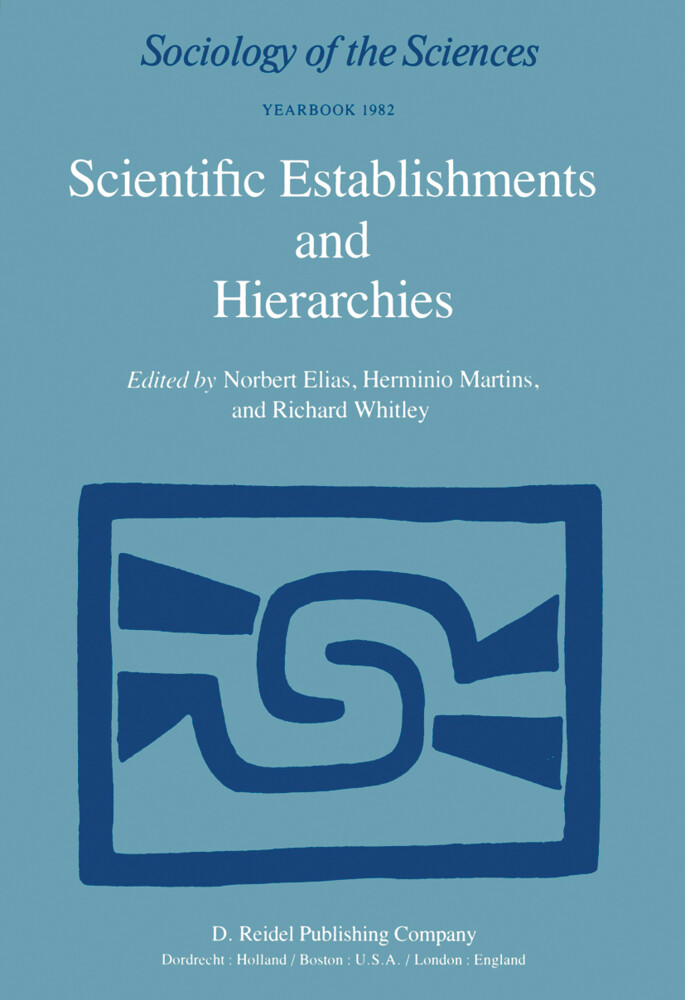
Zustellung: Di, 28.01. - Fr, 31.01.
Versand in 1-2 Wochen
VersandkostenfreiBestellen & in Filiale abholen:
In recent years sociologists of sciences have become more interested in scien tific elites, in the way they direct and control the development of sciences and, beyond that, in which the organization of research facilities and resources generally affects research strategies and goals. In this volume we focus on scientific establishments and hierarchies as a means of bringing aspects of these concerns together in their historical and comparative contexts. These terms draw attention to the fact that much scientific work has been pursued within a highly specific organizational setting, that of universities and aca demic research institutes. The effects of this organizational setting as well as its power relations, and its resources in relation to governmental and other non-scientific establishments in society at large, deserve closer attention. One significant aspect of scientific establishments and hierarchies and of the power relations impinging upon scientific research, is the fact that the bulk of leading scientists have the professional career, qualifications and status of a professor. As heads or senior members of departments, institutes and laboratories, professors form the ruling groups of scientific work. They are the main defenders of scientific - or departmental - autonomy, accept or resist innovations in their field, play a leading part in fighting scientific controversies or establishing consensus. Even where research units are not directly controlled by professors, authority structures usually remain strongly hierarchical. These hierarchies too deserve attention in any explora tion of the social characteristics of scientific knowledge and its production.
Inhaltsverzeichnis
I Scientific and Other Establishments. - Scientific Establishments. - The Scientific Power Elite a Chimera; The Deinstitutionalization and Politicization of Science. - The Hallmarks of Science and Scholasticism: A Historical Analysis. - Advice from a Scientific Establishment: the National Academy of Sciences. - II Establishments and Hierarchies in the Development of Scientific Knowledge. - Giving Life a New Meaning: The Rise of the Molecular Biology Establishment. - Two Scientific Establishments which Shape the Pattern of Cancer Research in Germany: Basic Science and Medicine. - Development and Establishment in Artificial Intelligence. - The Development of Restrictedness in the Sciences. - Scientific Disciplines and Organizational Specificity: the Social and Cognitive Configuration of Laboratory Activities. - III Establishing Boundaries and Hierarchies in the Sciences. - On the Autonomy of Pure Science: The Construction and Maintenance of Barriers between Scientific Establishments and Popular Culture. - Research Trails and Science Policies: Local and Extra-Local Negotiation of Scientific Work. - The Establishment and Structure of the Sciences as Reputational Organizations.
Produktdetails
Erscheinungsdatum
31. März 1982
Sprache
englisch
Auflage
1982
Seitenanzahl
388
Reihe
Sociology of the Sciences Yearbook
Herausgegeben von
N. Elias, H. Martins, Richard P. Whitley, Norbert Elias
Verlag/Hersteller
Produktart
gebunden
Abbildungen
XIV, 369 p.
Gewicht
746 g
Größe (L/B/H)
241/160/26 mm
Sonstiges
HC runder Rücken kaschiert
ISBN
9789027713223
Entdecken Sie mehr
Bewertungen
0 Bewertungen
Es wurden noch keine Bewertungen abgegeben. Schreiben Sie die erste Bewertung zu "Scientific Establishments and Hierarchies" und helfen Sie damit anderen bei der Kaufentscheidung.










